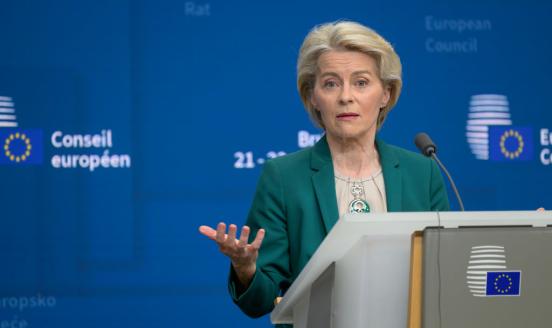The Medium and the Message
As a think tank whose mission is to improve the quality of economic policymaking in Europe and globally, Bruegel’s greatest emphasis has always been on the message rather than the medium of the message. However, Bruegel has always been conscious of the way it communicates and with whom it communicates, knowing that better access to its policy suggestions and analysis improves the chances of being heard, understood and having impact. Bruegel’s Policy Brief, whilst not an original concept, was carefully designed to attract, and to have the maximum impact on people whose world was already beginning to move faster and faster.
The development of on-line communication tools mirrored Bruegel’s own development to a certain extent: in the beginning Bruegel’s staff spent equal amounts of time updating the freeware-based website as they did putting papers in envelopes, printing address labels and sticking on stamps (how I remember the arrival of the franking machine!). Now the situation is very different: the money and time spent sending out paper copies is now focused entirely on online output which has grown enormously: in updating the (far more sophisticated) website, producing videos and podcasts, managing commentary, blogging, tweeting, emailing updates, and newsletters. Bruegel’s consumption of padded envelopes has all but ceased and the franking machine is not exactly retired, but takes its life much more easily! Paper is not dead, but you have to visit our offices now to experience the printed word.
Through all these changes there is no doubt that what Bruegel fellows think, write and say has been more important to the policy debate than whether they tweeted it, blogged it or published a paper on it. But what cannot be denied is that publishing papers is no longer enough; that being present in other media does affect the impact of your message to the public, and therefore to policy-influential individuals and eventually to policy makers. As a young think tank Bruegel did not have the resources to address the wider world very effectively, other than the opportunities provided by the Press, along with occasional interviews on television and radio. With the evolution of all of these channels of communication, Bruegel can now more successfully address the public and involve it in its mission to improve economic policy making.
So it is a natural, if not inevitable, evolution for Bruegel to develop a product for hand-held devices, which have grown in popularity and importance over the last couple of years. This medium allows Bruegel to present its messages in yet another way, which will widen the availability of all of its outputs, and with some luck, the impact of the policy recommendations our fellows spend so much effort perfecting. In widening availability we may hopefully increase our impact, and involve the wider public in debates that will have an impact on us all.”
The Bruegel iPad app is free and available in the App Store at http://itunes.apple.com/app/bruegel-app/id541557537



